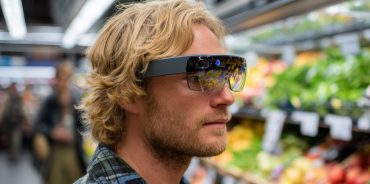Augmented AI, altruism, and acceleration: our data science trends for 2023
As discussed on this blog before, one of the wonderful things about data science is that it never stands still. No matter how much progress we might make, there’s always something new coming down the line that can help us do more for customers.
With that in mind, and with a new year upon us, we asked dunnhumby’s Chief Data Science Officer Sandra Stanley for her thoughts on what 2023 could hold from a data science perspective. Here’s what she had to say.
“Every day, all around the world, data science is changing the way that we do things for the better. From risk evaluation in financial services to self-driving cars in automotive, personalised care to price optimisation, data science is being used across industries to deliver better outcomes, and create smarter, more customer-centric products and services.
“While the data science industry isn’t subject to the same kind of moment-to-moment shifts that something like media and advertising is, we do still see clear overarching trends when it comes to progress and innovation. And, right now, there are three themes in particular that I believe will continue to change the face of data science in 2023 and beyond.
1. Augmented Intelligence
Artificial Intelligence (AI) is a term we use to classify machines that mimic human intelligence. Amongst other things, AI can be used to predict, automate, and optimise tasks that have historically been carried out by humans, things like decision making, speech and facial recognition, and translation. Augmented Intelligence is based on the principle of using AI to enhance human thinking.
Decision making is of particular relevance here. Over the past decade, we’ve gone from providing “descriptive” insights that can support decisions, to “predictive” insights that actually influence those choices. The next stage in that evolution is “prescriptive” insights that automate the decision making process, with data science working hard to calculate an optimal solution to a problem.
Naturally, there are challenges here. Without due care, data science can actually amplify any bias that exists in a dataset; one academic computer vision algorithm recently determined that all “cooking” images must feature women, for instance. And anyone with an interest in driverless cars will already know about the ethical issue of whether to put driver or pedestrian safety first.
All of this is driving us to think long and hard about how we can get value out of Augmented Intelligence without those negative consequences. Transparency, accountability, and fairness are all key here – ensuring that we understand how data is being used, what the potential results may be, and whether anyone will be disadvantaged as a result.
2. Data Science for Good
The events of 2022 have made us all stop and think. In the face of extreme weather, forest fires, and a global pandemic, how can we help our planet? The results of our Shopper Thoughts panel from September confirms how important those issues now are to consumers, with 43% saying that they’re conscious about the environment, and 28% wanting to buy sustainable products but believing they’re too expensive.
Data science has a sizeable role to play here. Whether by combining data from different sources in order to understand some of the psychological aspects of consumer decision making, or codifying sustainability by creating a single source of truth for product information, data science innovations give us the ability to better support customers with their sustainable choices.
There are any number of possibilities for what that might look like in practice. From sustainability-based customer segmentations through to algorithms that nudge shoppers towards environmentally-friendly or meat-free substitutions, there is a huge amount of potential here for quick wins that benefit both customers and planet in equal measure.
3. Big(ger) Data
From terabytes to petabytes and now exabytes: the amount of data that we produce on a daily basis continues to grow. Volume isn’t the only factor at play here, though; so too are things like variety and velocity, with data now being generated in a greater number of formats, and near-real time analytical capabilities beginning to emerge.
While some might look at this influx of information as a problem, the advance of technology actually turns it into an opportunity. An innovation like Deep Learning for instance – a practice that trains computers to learn by example like a human brain – has profound implications for personalisation, because it can take vast datasets and find patterns that would previously have been much harder to identify.
Other developments in this space hold similar promise. Foundation models, which are incredibly adept at working with images and text, could revolutionise product substitutions, taking us beyond the use of EPOS data to make relevant recommendations. From a UI perspective, these models might also make it possible for us query data vocally rather than having to manually select different parameters.
One emerging technology that I’m particularly excited about is Quantum Computing. In collaboration with Durham University, we’re exploring how this emerging technology could be applied to retail issues like optimisation. Optimisation has implications for everything from delivery routes to promotional strategies, and Quantum Computing could prove to be genuinely game changing here.
No matter how far we go in terms of technology, however, data will continue to be the foundation of everything that we do. While much of the industry discussion over the last few years has focused on the need for more sophisticated models to deliver greater value from data, that dialogue is quickly shifting towards the need for higher quality data to realise the gains we all want.
So long as we can maintain the right balance here – bigger data can also lead to increased costs, slower results, and privacy concerns, after all – the potential is abundantly clear.”
TOPICS
RELATED PRODUCTS
A look at dunnhumby’s unique Customer Data Science, which is at the core of everything we do.
Data Science solutionsThe latest insights from our experts around the world
AI and data science in 2026: the trends everyone’s talking about



